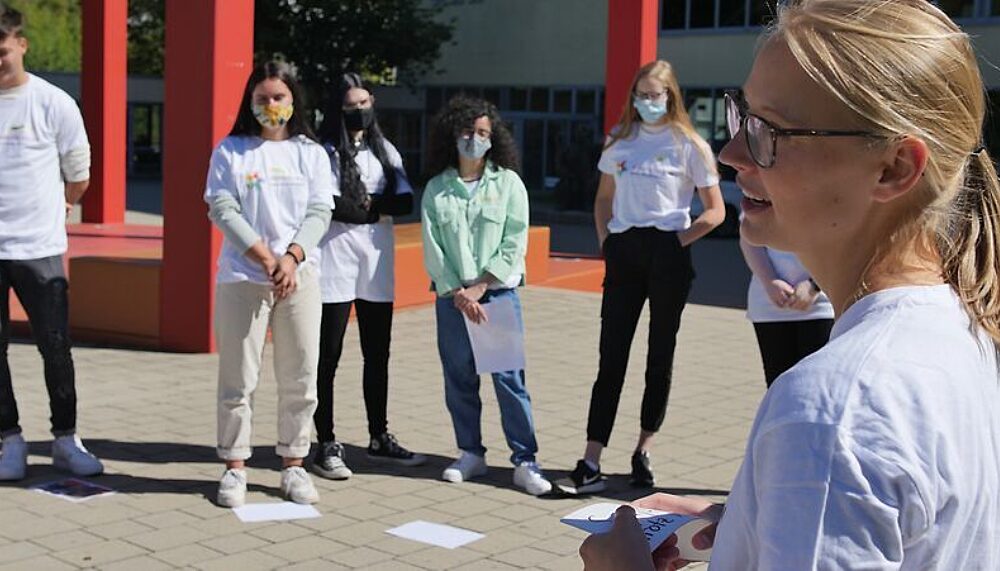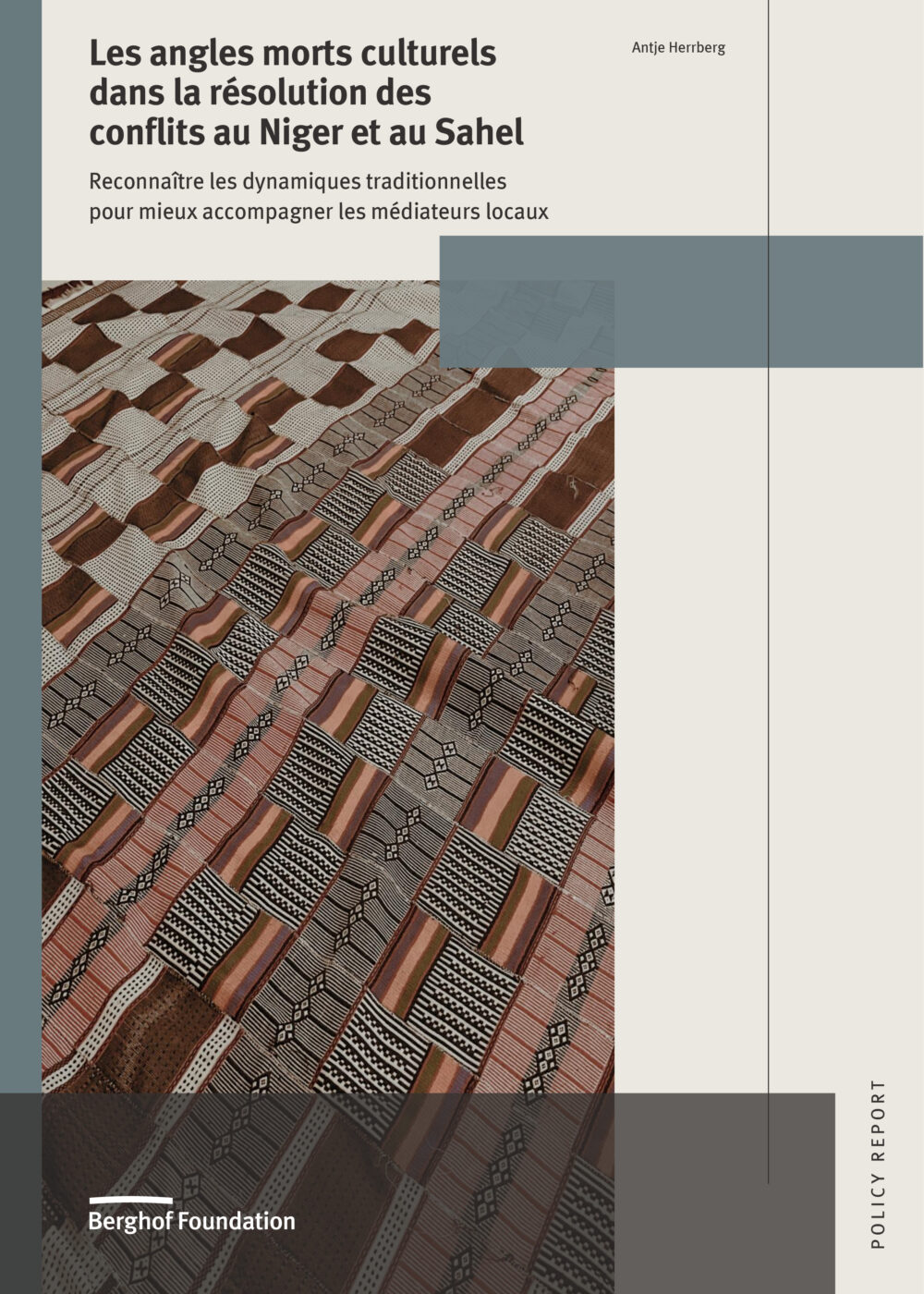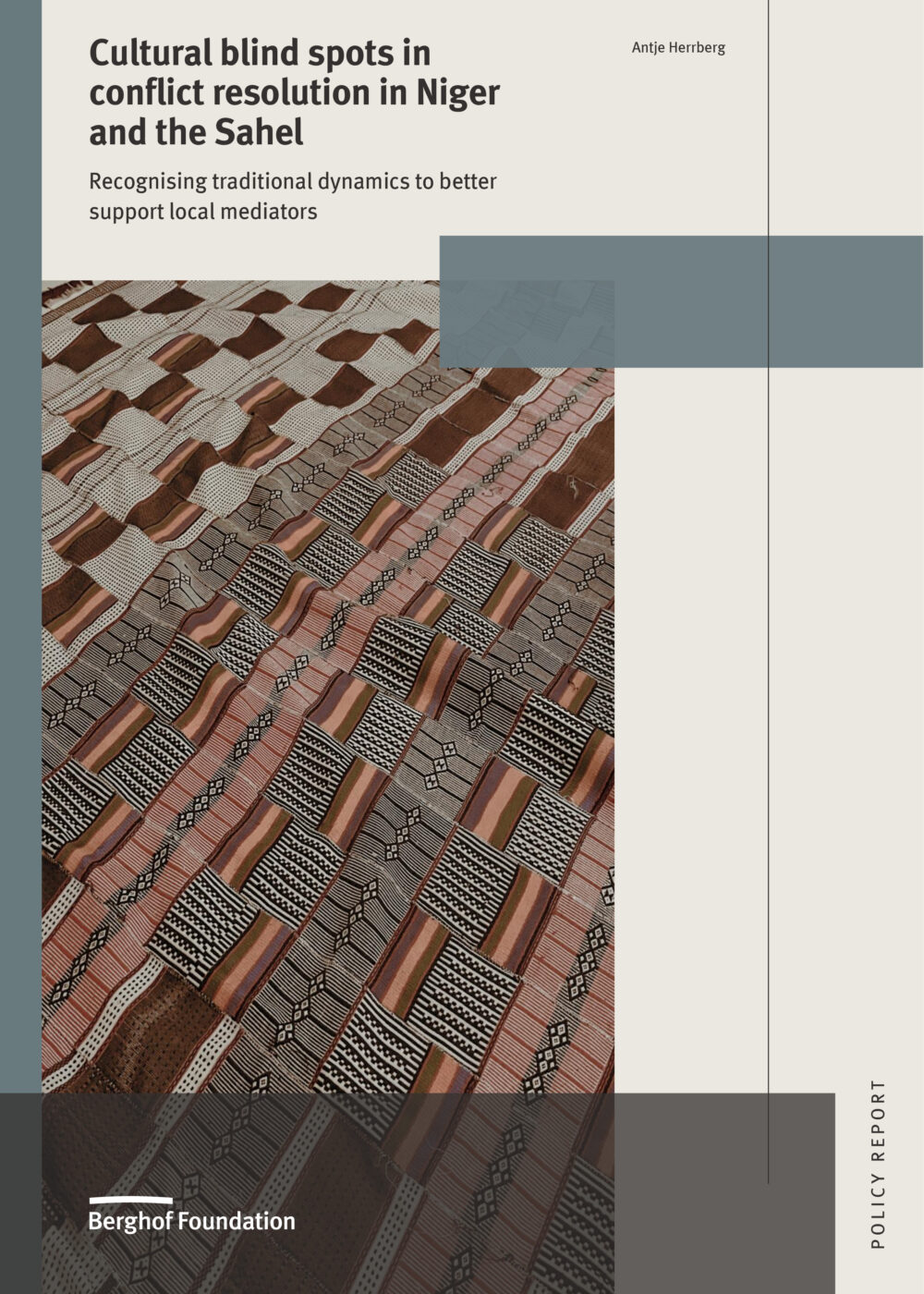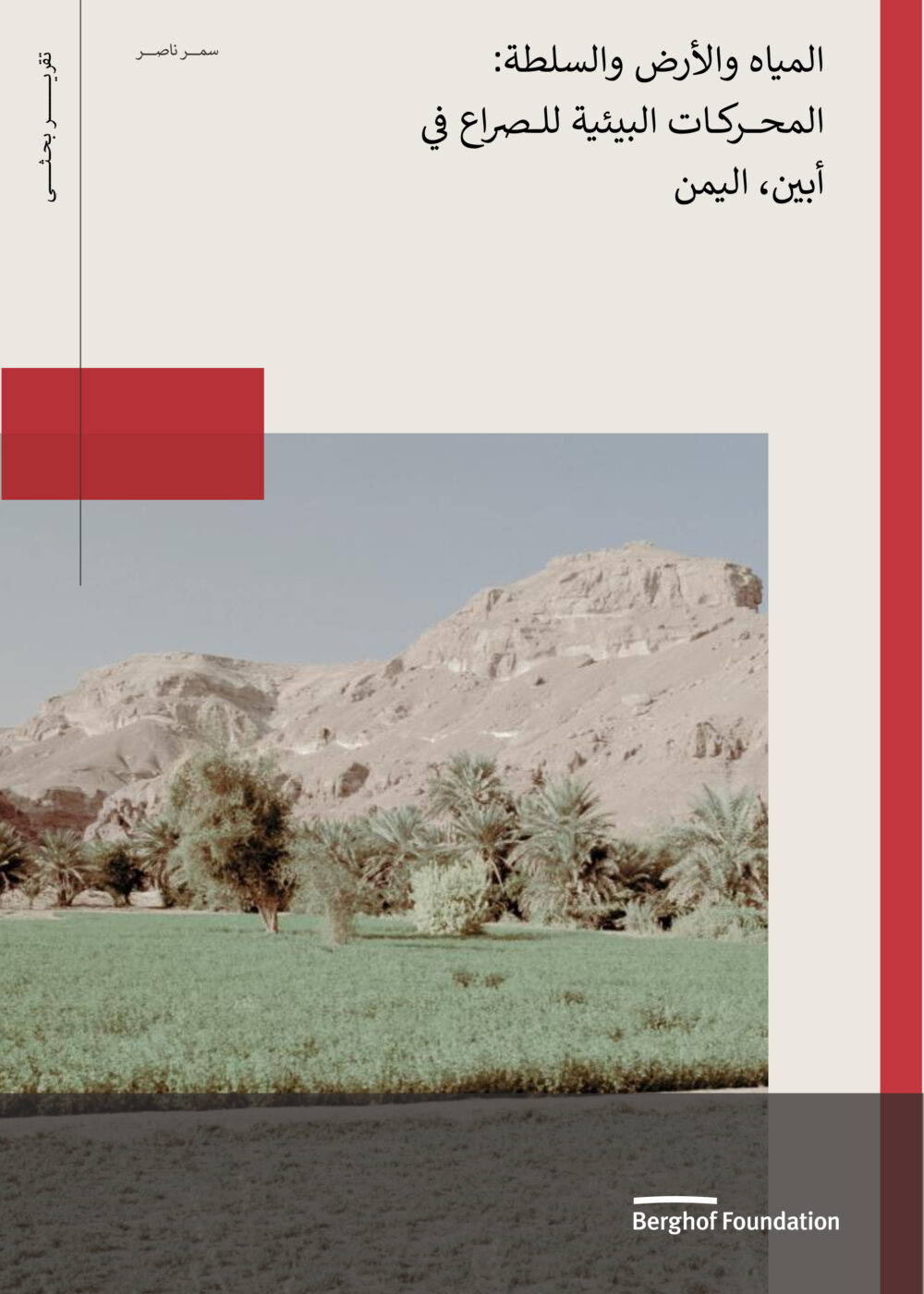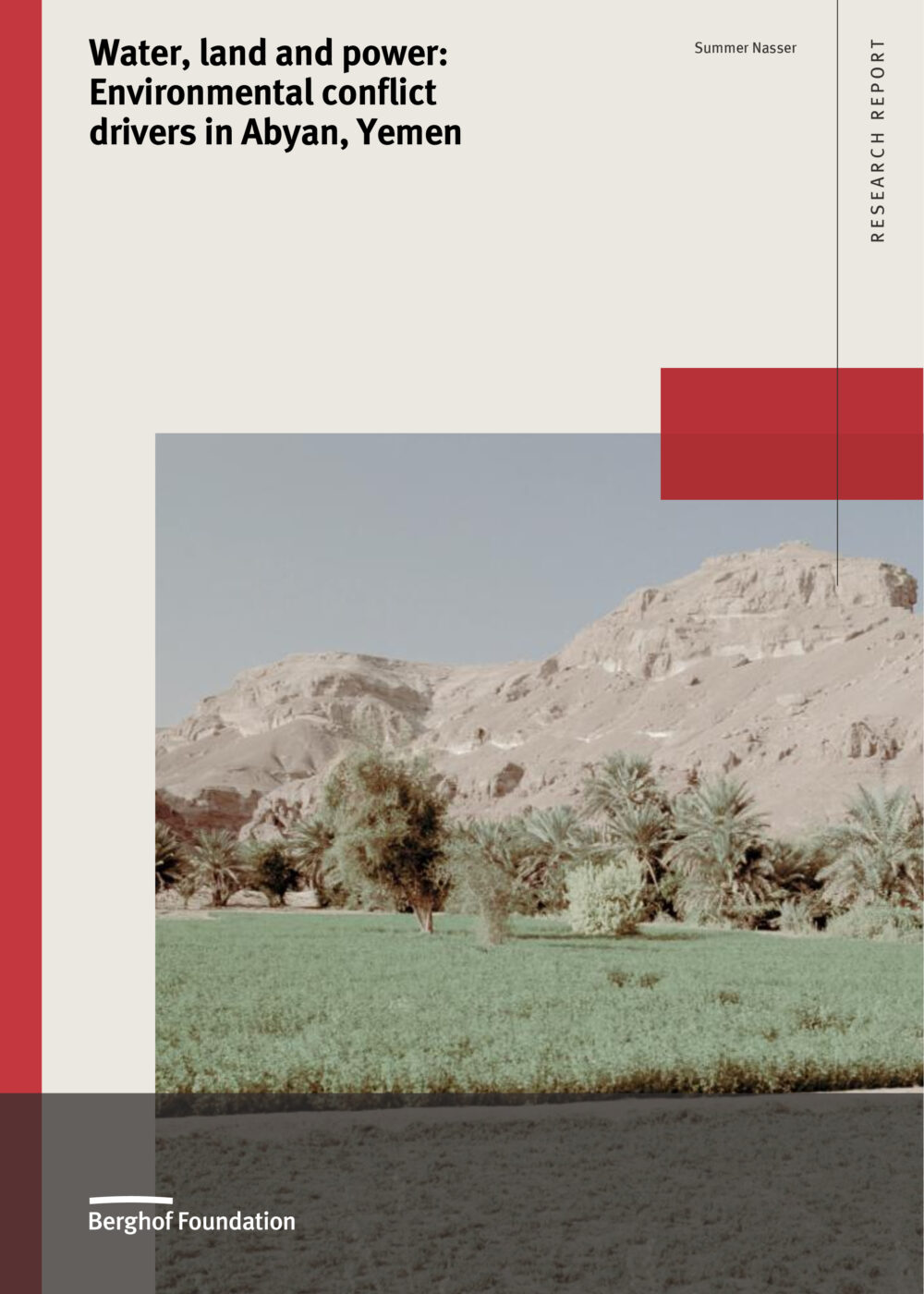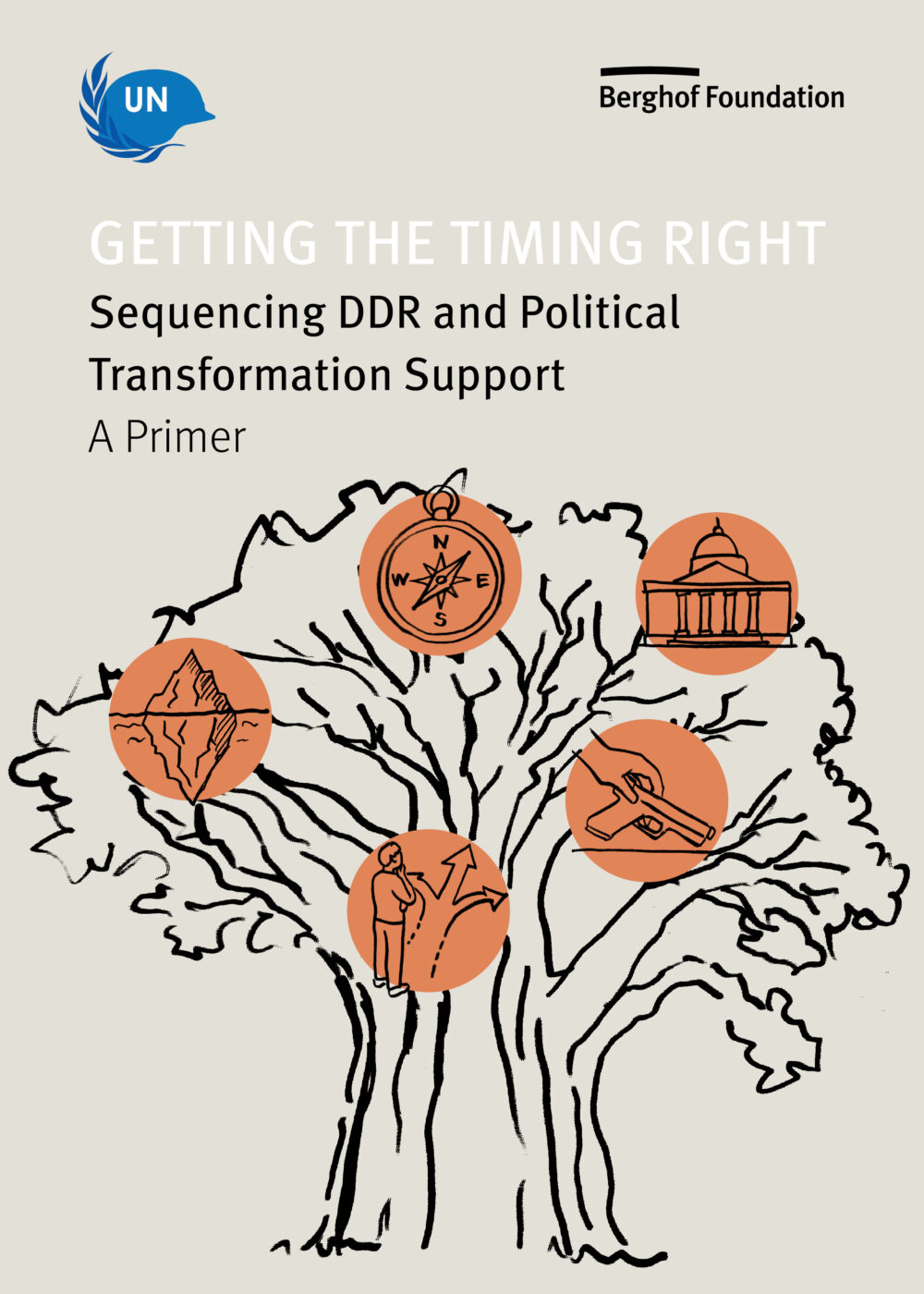25 Jun 2024
The Burning Question
Climate and conflict – why does it matter?
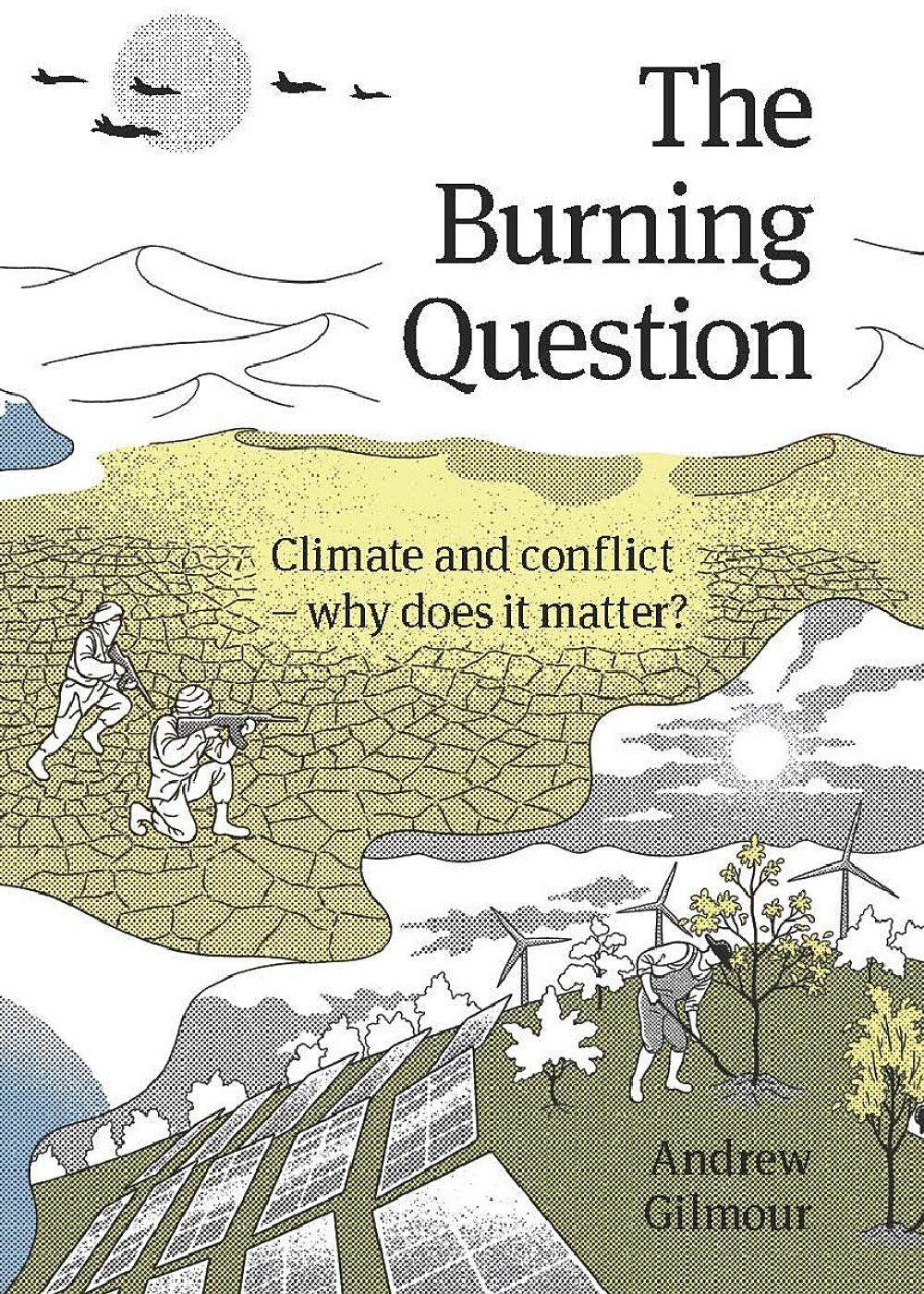
In his book, Andrew Gilmour explores how climate change contributes to conflict and undermines prospects for peace. He also examines how we can ensure that our efforts to address the climate crisis advance sustainable peace.
Authors
Building on his thorough understanding of global conflicts and drawing on a wealth of real-life examples, he addresses a wide range of political and practical issues and their cascading effects on human and national security in a refreshing and accessible manner.
Reviews:
"Andrew Gilmour has made a rare attempt to understand the triple nexus of climate change, conflict and migration. The questions raised in this book are so formidable one must admire the author's tenacity in writing it. What he calls the "increasingly acute triple nexus" of conflict, climate change and migration is the most pressing and complicated issue of our time. […]
As a peace-builder concerned about the environment he criticises the West's failure to help the poorest countries both to mitigate and to adapt to climate change – a state of affairs he says "cannot be allowed to continue". His major achievement here is to lift our eyes to the probability of mass migration from many causes and the possibilities of doing something about it. […]
Gilmour's conclusion is simply that policymakers must pay particular attention to conflict prone areas. He says he is not alarmist but that we have to be aware of increasing numbers of migrants heading our way. In this context he warns of the growing response of right-wing groups all over Europe.
One reason for promoting this book is its rarity: we all, including politicians, badly need further education to understand how the world is responding to all these problems." – JOHN MONTAGU, EARL OF SANDWICH, The House Magazine
"The Burning Question […] doesn't just address the usual impacts of climate change, but also those of the measures to respond to climate change. […] There have been reports addressing these important linkages. Having these together, supported by lots of real-world examples, and written in a very readable style, make this book into an important read. [...] The Threat Multiplier – Climate, military leadership and the fight for global security by Sherri Goodman is an other excellent book […]. These two books offer us important aspects of the problem and of solutions – not just in new silos of "security and conflict" but linking them to the broader so-called "polycrisis" we are facing, and the sustainable development solutions that framing requires.
I can only recommend that both of these books make it on your reading list in the new year 2025!" – JANOS PASZTOR, former Executive Director of the Carnegie Climate Governance Initiative (C2G), former UN Assistant Secretary-General for Climate Change
"The Burning Question offers a timely and critical examination of the climate–conflict nexus. [...] Gilmour presents the compelling argument that climate change has become a significant factor in furthering conflict. What sets this book apart from the available literature on climate change is its focus on the intersection of climate and conflict, a topic that has yet to receive the depth of inquiry it deserves. [...] Through his case-studies of the Horn of Africa, the Middle East and North Africa, and the Sahel, the author illustrates the disproportionate impact of the intersection of climate and conflict on highly vulnerable regions with analytical depth. For each case-study, Gilmour also provides critical insights and potential solutions. [...] Drawing from his experience working in some of the world’s most vulnerable regions, Gilmour illustrates the potential that can be unlocked [...]. The author also sheds light on women’s participation and the role of education in successfully undertaking adaptive measures. […]
I believe the strength of the book lies in its meticulously researched empirical foundations. Indeed, it features over 345 references, numerous footnotes and a well-curated bibliography. Gilmour powerfully constructs arguments wherein one point moves seamlessly into another. The book is compelling and will prompt readers to rethink the causal connection between climate and conflict. Those interested in climate and conflict will find the book and the author’s highly nuanced arguments relevant. Gilmour aims to foster discourse across different levels of political and social organizations, and the book should inform practitioners seeking to understand and address the complexities of this urgent issue." – PRACHI LOKHANDE, International Affairs
"Gilmour’s elegantly written book is necessary, timely and important. It’s a call to action for anyone who cares about the future of the human race." – NEIL MACKAY,The Herald
“The Burning Question: Climate and Conflict – Why Does it Matter? [is] a thought-provoking book on the links between global warming and war.” – HUGO DIXON, Reuters Breakingviews
“Andrew Gilmour does not just explain the problems, but also navigates ways of dealing with them, drawing on a long and distinguished career that has given him invaluable experience, authority and insight. As the author makes so clear, the best place to start with a changing world is to understand it. In parts sobering but also optimistic, The Burning Question does what all good books do: it makes you think. This is an important and timely book that sets out the existential risks that do not just lie ahead of us, but are already here.” – PETER FRANKOPAN, Author of The Silk Roads and The Earth Transformed
“Despite thinking I understood the topic of this book already, I learned so much from this beautiful piece of work. Andrew Gilmour is right: as wars rage around us, it’s essential both to take action against climate change and to do so in ways that reduce rather than risk further conflict. His call to action comes from a searing analysis of how climate justice and political conflict interact. The warning is clear, as are the lessons on what works and what does not. The book succeeds in showing us why climate change has to be a collective effort from this day forward.” – MONICA MCWILLIAMS, Author of Stand Up, Speak Out
“In this important and timely book, Andrew Gilmour explains how climate change contributes to the intensification of social and political conflict across the world. With a wealth of examples from across the Global South, he documents the unequal burden borne by women in conditions of social strife and/or resource scarcity. He explores the role of public policy, community action, restoration ecology, and technological innovation in mitigating conflicts caused by climate change – always with the aim of helping the poorest and most vulnerable. Andrew Gilmour provides a fresh, and complementary, perspective, with his analysis of climate change conflicts, their origins, articulations, and possible resolutions. His is an admirable effort at what he aptly terms ‘environmental peacebuilding.’ His book deserves to be widely read.” – RAMACHANDRA GUHA, Biographer of Gandhi and author of Environmentalism: A Global History
Thanks for your interest
If you find this publication useful, please consider making a small donation. Your support enables us to keep publishing.


